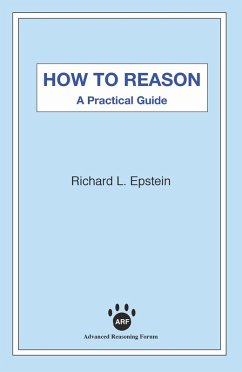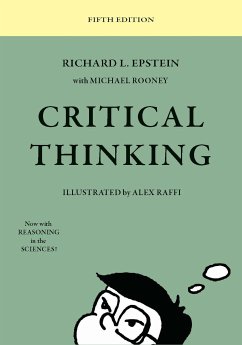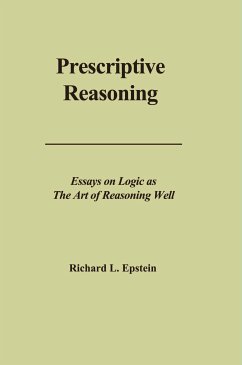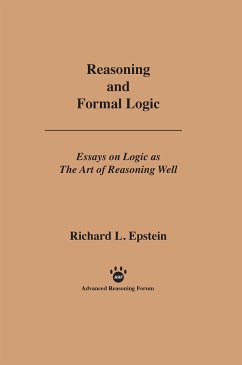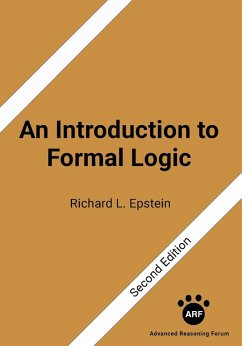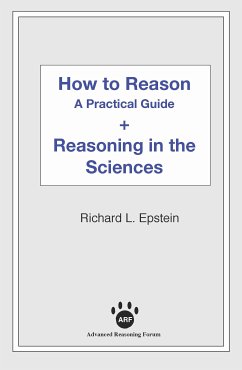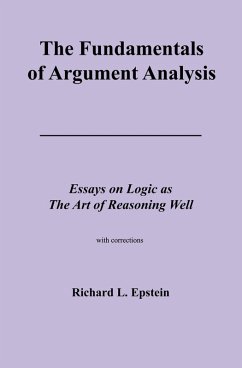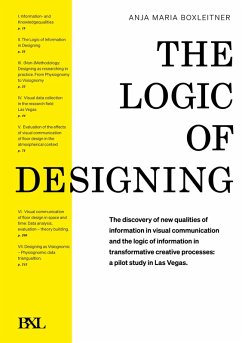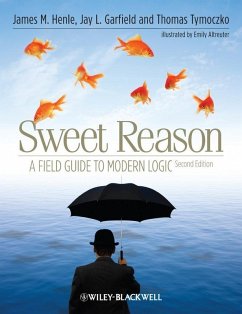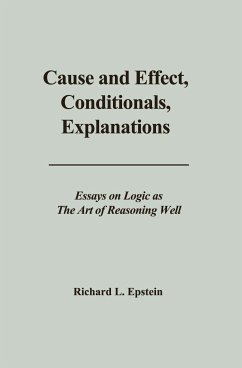
Cause and Effect, Conditionals, Explanations (eBook, PDF)

PAYBACK Punkte
0 °P sammeln!
This series of books presents the fundamentals of reasoning well, in a style accessible to both students and scholars. The text of each essay presents a story, the main line of development of the ideas, while the footnotes and appendices place the research within a larger scholarly context. The essays overlap, forming a unified analysis of reasoning, yet each essay is designed so that it may be read independently of the others. The topic of this volume is the evaluation of reasoning about cause and effect, reasoning using conditionals, and reasoning that involves explanations. The essay "Reaso...
This series of books presents the fundamentals of reasoning well, in a style accessible to both students and scholars. The text of each essay presents a story, the main line of development of the ideas, while the footnotes and appendices place the research within a larger scholarly context. The essays overlap, forming a unified analysis of reasoning, yet each essay is designed so that it may be read independently of the others. The topic of this volume is the evaluation of reasoning about cause and effect, reasoning using conditionals, and reasoning that involves explanations. The essay "Reasoning about Cause and Effect" sets out a way to analyze whether there is cause and effect in terms of whether an inference from a claim describing the purported cause to a claim describing the purported effect satisfies specific conditions. Different notions of cause and effect correspond to placing different conditions on what counts as a good causal inference. An application of that method in "The Directedness of Emotions" leads to a clearer understanding of the issue whether every emotion need be directed at something. In the essay "Conditionals" various ways of analyzing reasoning with claims of the form "if . . . then . . ." are surveyed. Some of those uses are meant to be judged as inferences that are not necessarily valid, and conditions are given for when we can consider such inferences to be good. In "Explanations" verbal answers to a question why a claim is true are evaluated in terms of conditions placed on inferences from the explaining claims to the claim being explained. Recognizing that the direction of inference of such an explanation is the reverse of that for an argument with the very same claims is crucial in their evaluation. Explanations in terms of functions and goals are also investigated.
Dieser Download kann aus rechtlichen Gründen nur mit Rechnungsadresse in A, B, BG, CY, CZ, D, DK, EW, E, FIN, F, GR, H, IRL, I, LT, L, LR, M, NL, PL, P, R, S, SLO, SK ausgeliefert werden.




